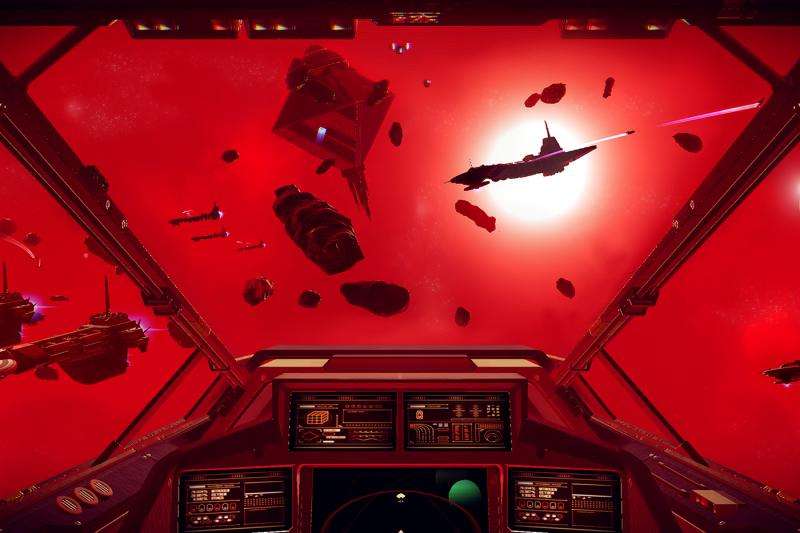Exploration and collaboration are taking gaming to the next level

Two of the most unique—and potentially revolutionary—games of all-time were released this summer. The first was "Pokémon Go," the augmented reality game for the iOS and Android operating systems in which players use their mobile device's GPS capability to locate, capture, and then train the virtual creatures. The second, "No Man's Sky," the action-adventure game for the PC and PlayStation 4, allows players to travel through a massive world comprising 18 quintillion procedurally generated planets. The game is built on four primary actions—explore, fight, trade, survive—with a particular focus on collecting resources, defeating alien creatures, and cataloguing discoveries en route from one planet to the next.
The obvious differences between the games—"Pokémon Go" is a mobile affair, able to be played in between classes or on lunch breaks, while "No Man's Sky" must be experienced in a specific place, in front of your TV or computer screen—are overshadowed by their similarities: both are open-ended, non-linear experiences, played not in search of a definitive ending but for the sheer thrill of exploration.
What does the striking similarity between these two seemingly very different games say about the future of the gaming industry? We asked Casper Harteveld, assistant professor of game design and a member of the Playable Innovative Technologies research group.
The initial success of "Pokémon Go" and "No Man's Sky" seems to suggest that the allure of the unknown—What Pokémon will I catch in this location? What animals will exist on that planet?—is a driving force behind the unfettered enthusiasm for these two games. How might their popularly shape the future decisions of game developers, including big studios like Square Enix and small ones like "No Man's Sky" creator Hello Games?
Uncertainty has always been a driving force behind games. If you know you will win, there is little reason to engage with the activity in the first place. What is different now are the possibilities to engage players with the unknown. In the case of "Pokémon Go" it is the familiar "real" world around us that suddenly becomes more interesting; with "No Man's Sky" it is the "virtual" world that is unfamiliar, enticing us to explore. Both games are a culmination of years, if not decades, of work in augmented reality on the one hand and procedural content generation—the ability to automatically generate content—on the other, but both have set a new standard for small and big studios to pursue in this direction.
Due to their initial successes, we may have witnessed the tipping point in innovation with these technologies. Having said that, I expect it will be difficult to replicate both successes. "Pokémon Go" is already based on an existing augmented reality game called "Ingress," and successors may fail to be unique or have the same wide appeal. "No Man's Sky" was widely anticipated, and the next procedurally generated game may not receive the same attention.
"Pokémon Go" and "No Man's Sky" have brought people together, both in person and online. How, if at all, has their popularity among the general public changed the perception of the gaming community as a whole?
Both games help to challenge our perception of what games are and can be. With "Pokémon Go," there are never-ending stories of how the game is impacting people's daily lives, such as a commute that needs to be altered to catch one more Pokémon. It is not only changing the perception of games but also of how we look at life, of what we consider to be "normal." In contrast, "No Man's Sky" is focused on life beyond Earth. Even though the game is based on the typical fight and explore mechanics, its endless space exploration gives it a deeper, existential layer that shows that games are maturing as a medium. What I find most interesting is that both games highlight the human curiosity to explore and the willingness to collaborate on these efforts—which are essentially the core elements of science. For example, "No Man's Sky" players have already discovered more species than exist on Earth. I hope that we realize these positive aspects but also learn from them in applying them to gamifying science itself. I am making efforts to this end with Mad Science, a collaborative platform where players can participate in and create social experiments.
Virtual reality and augmented reality have already begun to change the gaming industry. What other emerging trends or technologies do you predict will soon be disrupting the gaming world?
In the next few years we will see where the introduction of consumer virtual reality headsets will be taking us. And games will get bigger, smarter, and more beautiful. However, I believe that the idea of "mixed reality" in its broadest sense will be a next possible disruption, where games will be blending real and virtual worlds while also using different modalities (phone, PC, consoles) and allowing players to engage on different levels of complexity, according to their interest and expertise. You can imagine that both casual and hardcore gamers would be able to play together. Or that you could play parts of the game on the train while other parts in the comfort of your home. Now that I think of it—it would kind of be like mixing "Pokémon Go" and "No Man's Sky."
I am exploring this emerging trend myself by building an educational game called "Geo Explorer," in which engineering students step into a virtual world on their PC. They report findings on their mobile phones and have conversations with non-player characters called NPCs. Then, they perform laboratory experiments and make calculations with existing software while continuing to interact with the NPCs. After the new designs have been communicated through the phone, the virtual world will change.
Provided by Northeastern University





















